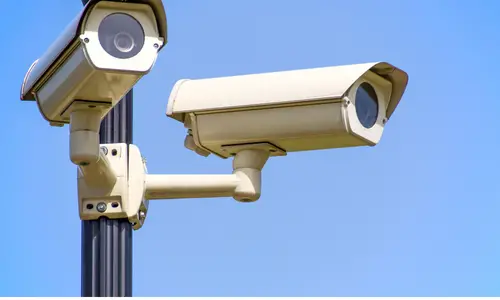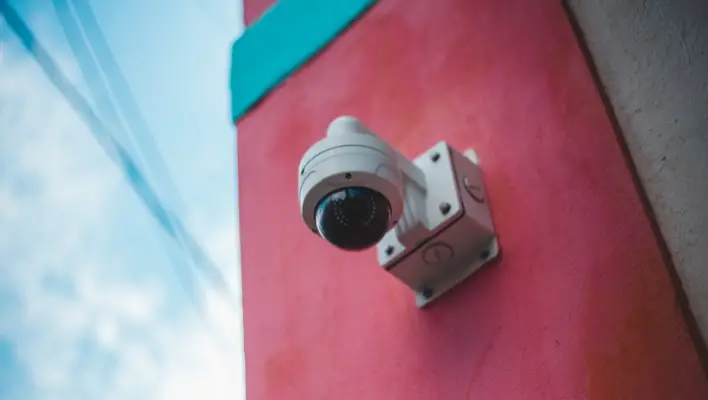Short answer – No. Most people would say that security cameras are an invasion of privacy. After all, they are constantly recording our every move. However, there are some who would argue that security cameras are a necessary evil. After all, they do help to deter crime. So, what do you think? Are security cameras an invasion of privacy or a necessary evil?

Many people question whether security cameras are an invasion of privacy. The Fourth Amendment guarantees that we are not subjected to “unreasonable searches and seizures” and there is also case law that protects our privacy. The ACLU has published reports and warns against abuse of security surveillance systems. These systems can be abused for purposes unrelated to safety and security.
How surveillance cameras can help prevent and solve crime?
While it is true that security cameras can help to prevent crime, the question of whether these cameras are an invasion of privacy should be asked before installing such a system. The answer is complicated and depends on the location of the cameras. If the cameras were hidden, the privacy claims would be more difficult to make. And if the cameras are installed in an area where privacy is expected, they can be much easier to defend.
If the cameras are used for public safety, security cameras are a good idea. The fact that they record every single movement inside and outside a monitored space means that anyone who enters or leaves the area will be caught on camera. This recorded footage can be used against them if the occasion arises.
Laws on surveillance cameras in public places
There are laws that restrict the use of surveillance cameras in public places, but they are few. In New York, for example, CCTV cameras must be installed in plain view and must have the consent of the person being recorded. In addition to these, some states prohibit the use of hidden security cameras. The use of CCTV cameras is only allowed if the subject has a reasonable expectation of privacy. But in most states, security cameras are not considered an invasion of privacy.
Public surveillance and video cameras are becoming more commonplace in American society. Fears of terrorism and the availability of cheaper video cameras have accelerated this trend. While some may consider these cameras an invasion of privacy, they are an important tool for the police and other public officials. However, their widespread use in public places is troubling in a free society. Some cities have plans to create a central surveillance center where they can monitor the footage from thousands of video cameras.
While most security cameras do not violate the law, some people are uncomfortable with their neighbors’ video surveillance. In such situations, contacting a lawyer might be necessary. This can help resolve the issue and avoid a legal battle. And the most important thing is to remember that clear communication is the key to a successful resolution.
Surveillance cameras and your privacy
Security vs Privacy Debate
The debate between security and privacy has been a hot topic for many years, with no clear consensus on which is more important. In the wake of the 9/11 attacks, security has taken on a new importance for many people, while others worry that the government is using the threat of terrorism to erode privacy rights.
There are valid arguments on both sides of the debate, and it is unlikely that there will ever be a clear winner. However, it is important to understand the arguments on both sides so that you can make an informed decision about what is more important to you.
Security vs Privacy: The Pros and Cons
The debate between security and privacy is one that has been around for many years. There are valid arguments on both sides of the debate, and it is unlikely that there will ever be a clear winner. However, it is important to understand the arguments on both sides so that you can make an informed decision about what is more important to you.
Arguments for security:
- Security is necessary to protect people from harm.
- The government has a responsibility to protect its citizens from harm.
- Security measures can help to prevent crime.
- Security measures can help to catch criminals.
Arguments for privacy:
- Privacy is a fundamental human right.
- People have a right to privacy in their own homes.
- The government should not be able to spy on its citizens.
- People should be able to freely associate with others without government interference.
As you can see, there are legit arguments on both sides of the debate. Ultimately, it is up to you to decide what is more important to you.
Final Words
At the end, most people aren’t bothered by surveillance cameras. They do not want their privacy invaded, but it’s important to realize that these devices have their place. The most obvious example is in the case of major thoroughfares, where a person’s privacy is not guaranteed. Similarly, a person’s purchases at a store can be recorded and analyzed for profit. Despite the privacy concerns, it’s important to understand that the laws governing these technologies differ from state to state.

